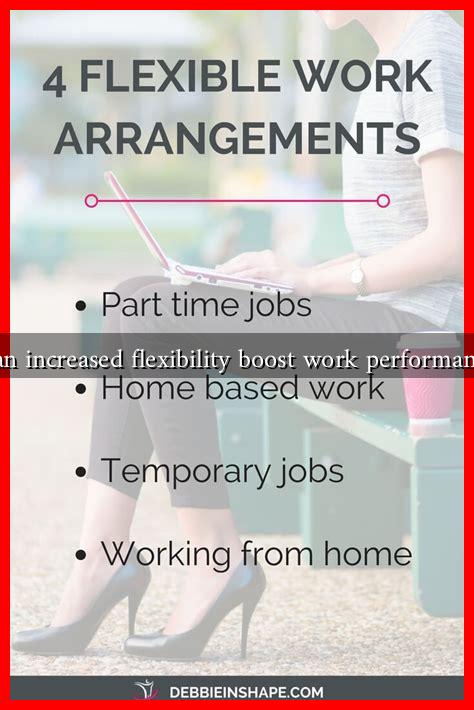-
Table of Contents
Can Increased Flexibility Boost Work Performance?
In today’s fast-paced work environment, the traditional 9-to-5 work model is increasingly being challenged. Companies are recognizing that flexibility in the workplace can lead to enhanced employee performance, satisfaction, and overall productivity. This article explores how increased flexibility can boost work performance, supported by research, case studies, and practical examples.
The Concept of Workplace Flexibility
Workplace flexibility refers to the ability of employees to have control over their work schedules, locations, and methods. This can manifest in various forms, including:
- Remote work options
- Flexible hours
- Compressed workweeks
- Job sharing
As organizations adapt to the changing landscape of work, understanding the benefits of flexibility becomes crucial for both employers and employees.
Benefits of Increased Flexibility
Research has shown that increased flexibility can lead to numerous benefits for both employees and organizations. Here are some key advantages:
- Improved Work-Life Balance: Flexibility allows employees to better manage their personal and professional lives, reducing stress and burnout.
- Higher Job Satisfaction: Employees who have control over their work schedules report higher levels of job satisfaction, which can lead to increased loyalty and retention.
- Enhanced Productivity: Studies indicate that employees who work flexibly often experience higher productivity levels, as they can work during their most productive hours.
- Attracting Top Talent: Companies that offer flexible work arrangements are more likely to attract and retain top talent, as many job seekers prioritize flexibility in their employment decisions.
Case Studies and Statistics
Several organizations have successfully implemented flexible work policies, leading to significant improvements in performance. For instance:
- Microsoft Japan: In August 2019, Microsoft Japan implemented a four-day workweek, resulting in a 40% increase in productivity. The company reported that employees were more focused and engaged during their working hours.
- Buffer: The social media management platform Buffer has a fully remote team. According to their 2020 State of Remote Work report, 98% of remote workers would like to work remotely at least some of the time for the rest of their careers, highlighting the demand for flexibility.
- Gallup Research: A Gallup study found that employees who work remotely at least part of the time are 20% more productive than their in-office counterparts. This statistic underscores the potential of flexible work arrangements to enhance performance.
Challenges of Implementing Flexibility
While the benefits of increased flexibility are clear, organizations may face challenges in implementation. Some common obstacles include:
- Communication Barriers: Remote work can lead to misunderstandings and a lack of collaboration if not managed properly.
- Performance Monitoring: Managers may struggle to assess employee performance without traditional oversight.
- Company Culture: Maintaining a cohesive company culture can be challenging when employees are working in different locations.
To overcome these challenges, organizations can invest in communication tools, establish clear performance metrics, and foster a culture of trust and accountability.
Conclusion
Increased flexibility in the workplace has the potential to significantly boost work performance. By allowing employees to manage their schedules and work environments, organizations can enhance job satisfaction, productivity, and overall employee well-being. As demonstrated by various case studies and research findings, the shift towards flexible work arrangements is not just a trend but a strategic move that can lead to long-term success. Companies that embrace this change will likely find themselves better positioned to attract and retain top talent while fostering a more engaged and productive workforce.
For more insights on workplace flexibility and its impact on performance, you can explore resources from Gallup and Buffer.


